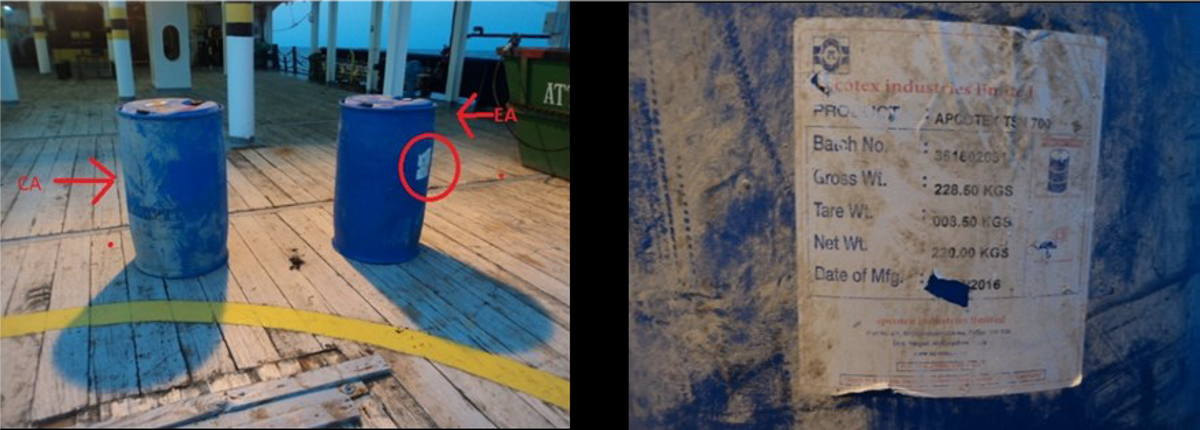Inadequate handling and storage of potentially hazardous substances
- Safety Flash
- Published on 31 January 2018
- Generated on 11 January 2026
- IMCA SF 03/18
- 1 minute read
Jump to:
Two drums with unknown chemicals were observed, floating in the sea.
What happened?
The crew retrieved these drums onto the vessel, but they were not stored safely.

What went wrong? What were the causes?
The vessel crew retrieved the drums on board without considering the risks, i.e. they were not aware of the type of product, or the condition of the plastic drums. The drums were placed without drip trays in close vicinity to a deck area commonly accessed by the crew, potentially exposing personnel to unknown risks.
Shore side management were not informed about the collected chemicals.
Lessons learnt
- A risk assessment should be carried out before handling chemicals or unknown substances potentially hazardous to health.
- Vessels should report immediately if unidentified floating objects are observed and retrieved onboard, so that adequate collection and destination can be arranged.
Related Safety Flashes
-
IMCA SF 29/17
15 November 2017
-
-
IMCA SF 16/17
27 June 2017
-
-
IMCA SF 03/05
1 March 2005
IMCA Safety Flashes summarise key safety matters and incidents, allowing lessons to be more easily learnt for the benefit of the entire offshore industry.
The effectiveness of the IMCA Safety Flash system depends on the industry sharing information and so avoiding repeat incidents. Incidents are classified according to IOGP's Life Saving Rules.
All information is anonymised or sanitised, as appropriate, and warnings for graphic content included where possible.
IMCA makes every effort to ensure both the accuracy and reliability of the information shared, but is not be liable for any guidance and/or recommendation and/or statement herein contained.
The information contained in this document does not fulfil or replace any individual's or Member's legal, regulatory or other duties or obligations in respect of their operations. Individuals and Members remain solely responsible for the safe, lawful and proper conduct of their operations.
Share your safety incidents with IMCA online. Sign-up to receive Safety Flashes straight to your email.